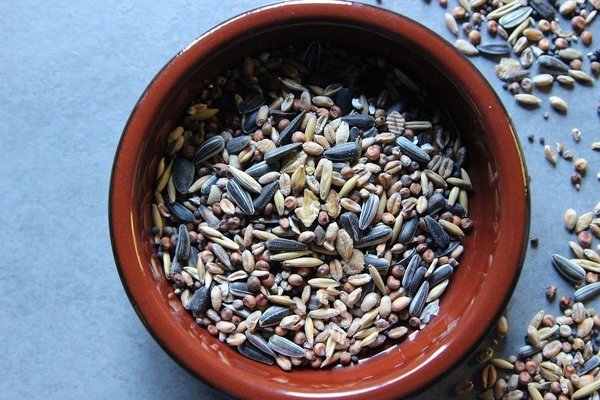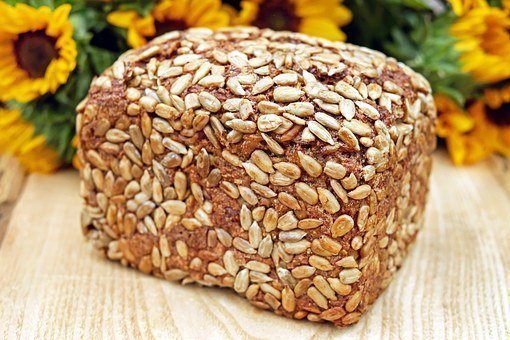How To Support Your Microbiome That Keep You Healthy?
Table of Contents
How To Support Your Microbiome To Keep Your Gut Healthy?
The microbiome, intestinal flora, so the bacteria in the gut, now mixes in the vocabulary of the nutritionally conscious. This vast collection of bacteria, also called the microbiome, has an extraordinary impact on health and disease.
In the media, the microbiome is a popular topic. Accordingly, almost every civilization disease, from diabetes, obesity, allergies, colon cancer, kidney stones, irritable bowel syndrome, depression, as well as autism, is said to have a dysbalance in the intestinal flora to be responsible.
For a balanced microbiome, nothing is more important than the right diet. But what exactly do they need to keep us healthy? We show you what you eat best for your healthy intestinal flora!

Eat green and plant-based
Our gut flora is exceptionally healthy if it consists of as many different species; many different bacteria occur in it! This diversity helps us to make good use of our food and is very important for the well-being of our bodies. In many studies, high diversity has been associated with health, while low variety can cause many diseases. The motto is to build a diverse microbiome! It is best to achieve this with a varied diet that includes many different fibers. We can find these fibers primarily in vegetables, whole grains, and fruits. By evolution, we humans are omnivores and should be used to eating plenty of plants.
The western diet
Unfortunately, the daily diet in western countries does not look like this anymore, and our microbiome, our intestinal flora, has also become quite monotonous. But what was healthy for us hundreds of years ago is still there today. Aboriginal peoples living off civilization continue to feed on various plants and fibers. Due to this variety of food, their intestinal flora also has a much higher diversity.
Read and find out more about healthy intestinal flora!

Eat more Vegetables
Vegetables should take a much more central role in our daily meals, as they offer an incredible amount of fiber. But it depends not only on the quantity but also on the most diverse varieties.
Tomatoes, peppers, cucumbers, and lettuce are probably the average vegetables we have on our plates. In principle, there is nothing wrong with these types of plants, but they are far from sufficient to support a diverse microbiome. Instead, we should serve varieties alternately, like Broccoli, lentils, chard, radishes, chickpeas, beets, and chicory. These are just a few of the varieties that we regularly forget — the more different types of vegetables and greens on our plates, the better for our intestinal flora.
Plant-based diet
The new food trend, the plant-based diet, can help here make plants a fundamental component of the daily diet. Let the vegetables of the season inspire you when you go to the supermarket. Even better to buy at the local farmer’s market. Do not serve the usual rice and salad to the average meal; also prepare vegetables and potatoes, which also have more fiber than rice!
Of course, the fruit is also precious to us. However, you should prefer vegetables to fruits because it is even more abundant in fiber and contains less sugar. But of course, crunchy apples, berries, bananas, and many other fruits are an excellent addition to a balanced breakfast or a snack.
Look at the grains!

Whole grains sound so healthy but are often more the second choice. Anyone who believes a good whole grain bread is dry, soggy, and has a dull taste is mistaken! A delightful Spelt and rye wholegrain has a much fuller, nuttier flavor than an everyday roll.
Whole grain stays fresh longer and harmonizes wonderfully with many spreads, ham, hummus, or salad. But it’s not just the taste that convinces wholemeal products; they also prevail in many other views.
Whole grains keep us satisfied.
Wholegrain keeps you satisfied much longer than traditional baked goods because the fiber is digested much slower in the intestine, and carbohydrates are more evenly absorbed into the blood. With a typical slice of white bread, it does not take long for your intestine to split everything and flush the former flour into the blood in the form of sugar. You feel full for a short time. But only until all the sugar, with the help of insulin, is out of the blood. Whole-grain bread, however, is digested longer in the intestine with the help of intestinal bacteria and keeps the blood sugar at a constant level for a long time. As a result, fewer hunger attacks and no desire for sweets.

Whole grain products are a special treat for your intestinal flora!
Through these many fibers, you feed your microbiome and offer him a lot of work! Of course, it is not only whole grain bread but also in many other areas; you can exchange regular flour for whole grain. Unfortunately, people rarely chose wholemeal pasta, wholegrain couscous, or unsweetened wholemeal muesli. For many people, whole grains are the exception, and regular white flour is the rule. If you want to do something good for yourself and your microbiome, you should turn this rule around and make whole wheat a daily menu. Of course, raw foodies and vegans know this 🙂
Let others work for you.
Not only can the bacteria in your gut help you digest, but also some of the countless bacteria that live outside your body. Probably the oldest form of food preservation uses lactic acid bacteria (lactobacilli). These decompose fibers and carbohydrates – the process is called fermentation. The bacteria make the food more durable and easier to digest. We benefit from this in two ways: on the one hand, valuable nutrient components are available to us, and on the other hand, fermented foods are probiotics. The latter means that live bacteria are in the food, and they enter our intestines.
Fermented food and probiotics

These probiotics are a special supplement to our intestinal flora and are the focus of many studies. There is evidence that probiotics can help people with irritable bowel syndrome and mental illnesses such as anxiety disorders or improve concentration and memory.
Taking probiotics through the diet is another point for maintaining intestinal flora. But which foods are fermented? Traditional fermented dishes include classic sauerkraut, kimchi, Korean fermented Chinese cabbage, miso, or kombucha. There are also plenty of other fermented vegan products, including yogurt, kefir, and cheese.
However, there are some things to consider when purchasing fermented foods. You should always buy sauerkraut or kimchi so that you can be sure that it is fermented. You can usually find it at the farmer’s market. The packaged sauerkraut from the supermarket is fermented but, unfortunately, pasteurized, and this kills all lactobacilli. If you want to be on the safe side, you can also ferment sauerkraut and many other vegetables yourself.
A HEALTHY SAUERKRAUT RECIPE DIY GOOD FOR YOUR GUT
Even packaged fermented dairy products are industrially produced with only a single strain of bacteria and are not the most exciting probiotics for the gut. Therefore, alternate natural yogurt varieties are advisable because different manufacturers use different bacteria. Even better, buy yogurt directly from the farmer’s market. However, the best yogurt you can give your gut is homemade.
How it works is very simple, you will find out here in the recipes!
!
Fermented foods should be part of the daily diet because they are a delicious treat! Serve Yogurt for breakfast and sauerkraut regularly in a salad with seed oil. See also > VEGAN FOODS THAT HELP YOU TO CLEANSE YOUR COLON.
Be aware of the hidden baddies.
Now we have looked at what can support your intestinal flora. But what about things that could harm the intestinal flora? There are ingredients that you should keep in mind. More and more products in the supermarket contain preservatives, dyes, emulsifiers, or flavor enhancers. “But I never eat frozen pizza and do not buy finished products!” – Really? Because these ingredients are not only in the finished chips package! Most canned vegetables, fruit-based yogurts, and supermarket bakery products also have these ingredients. And who does not sometimes buy canned beans or cornflakes?
Avoid additives
These vast amounts of additives affect the microbiome and intestinal mucosa and are co-responsible for the increasing incidence of many diseases, such as inflammatory bowel disease and autoimmune diseases. However, large-scale studies to test this in detail are still missing.
Read also here > What are Prebiotics, Probiotics, and Postbiotics — and What Do They Do for Your Gut Health?
See Popular Foods That Are Not Really As Healthy As You Think
See also Common Food Additives in Natural & Organic Foods: Are They Safe?
What does that mean for you and your microbiome? Consciously deal with supermarket products and read the description on the back more often. Of course, you can not avoid every additive, but reducing it is easy! Also, we should think about our microbiome more often; it also eats with us. Following a strict diet regime is probably unnecessary and will not last forever. Instead, it’s about more variety, lots of vegetables and fruits, legumes, whole grains, and fermented foods included in everyday life!
Your gut will thank you and keep you healthy! 🙂
See also > MICROBIOME – HOW TO TAKE CARE OF A HEALTHY INTESTINAL FLORA
Gut-Health Promoting Foods & Recipes to Nourish Your Microbiome
See also Are You Acidic? Symptoms That Show And What Can Help and Digestive Problems? How To Deal With It Changing Your Diet




